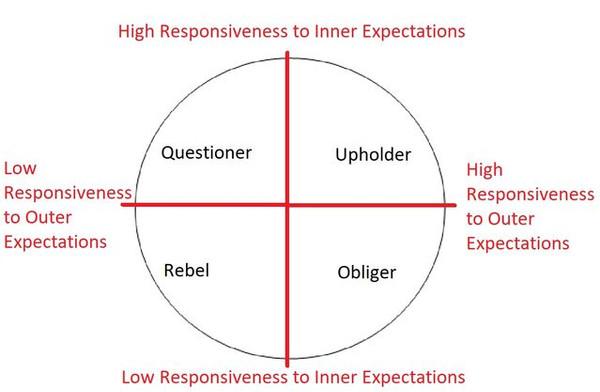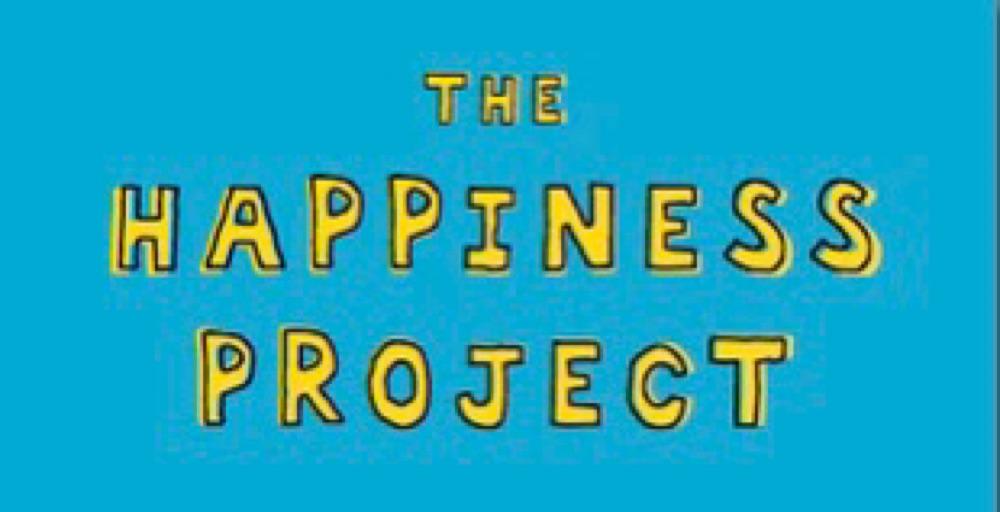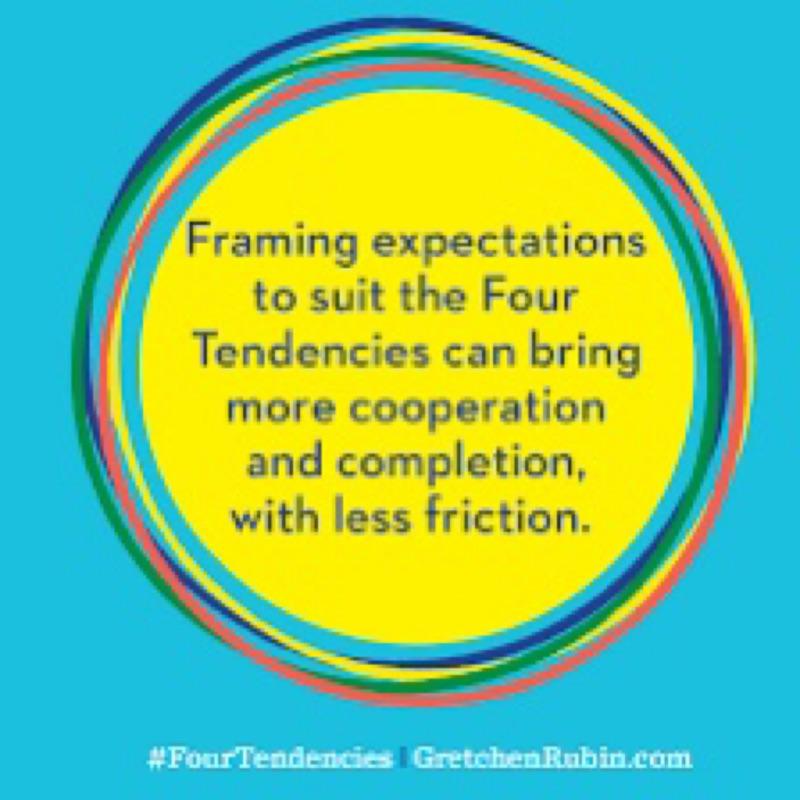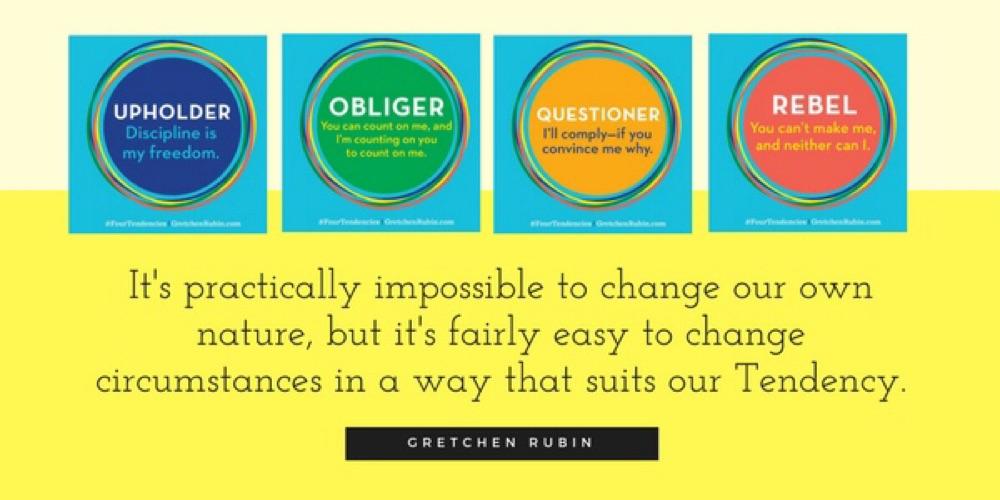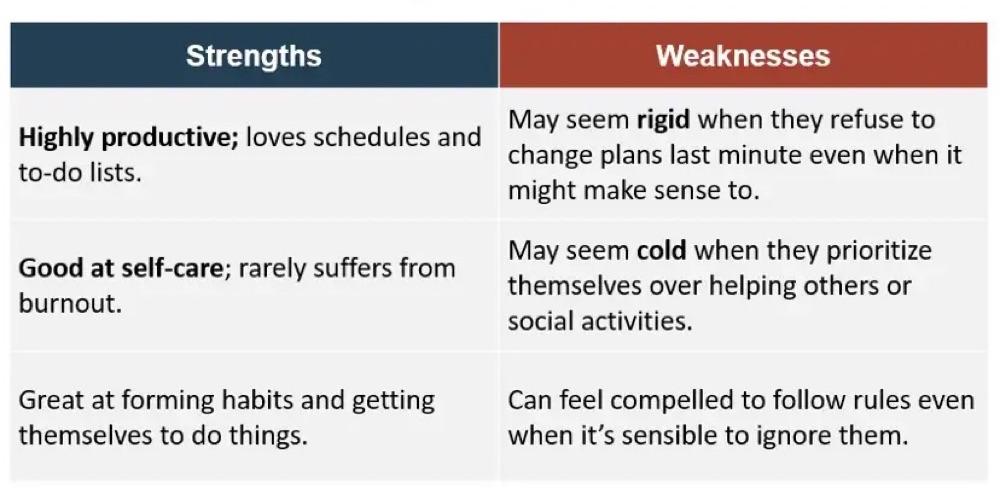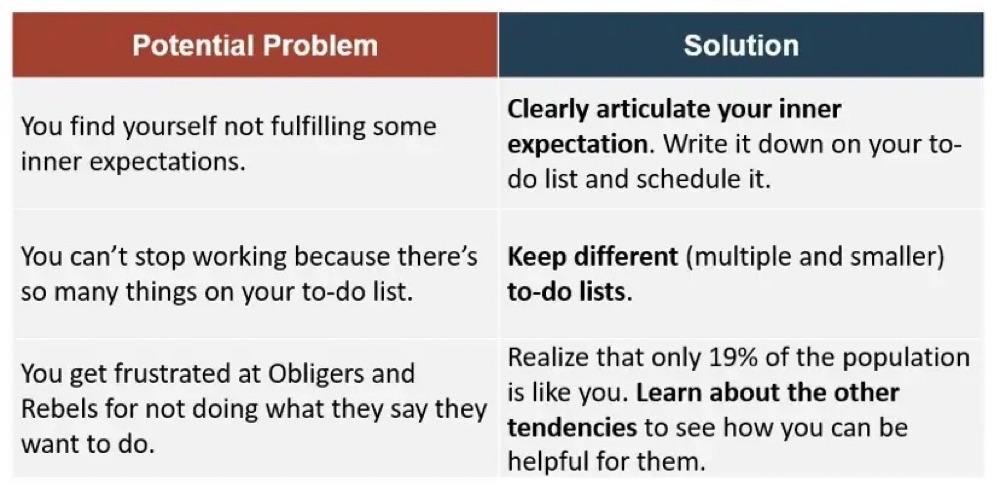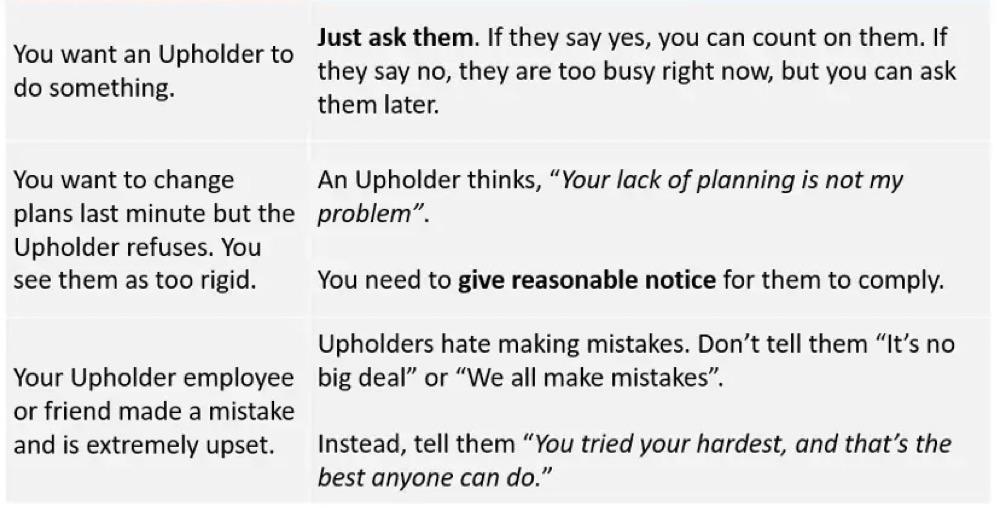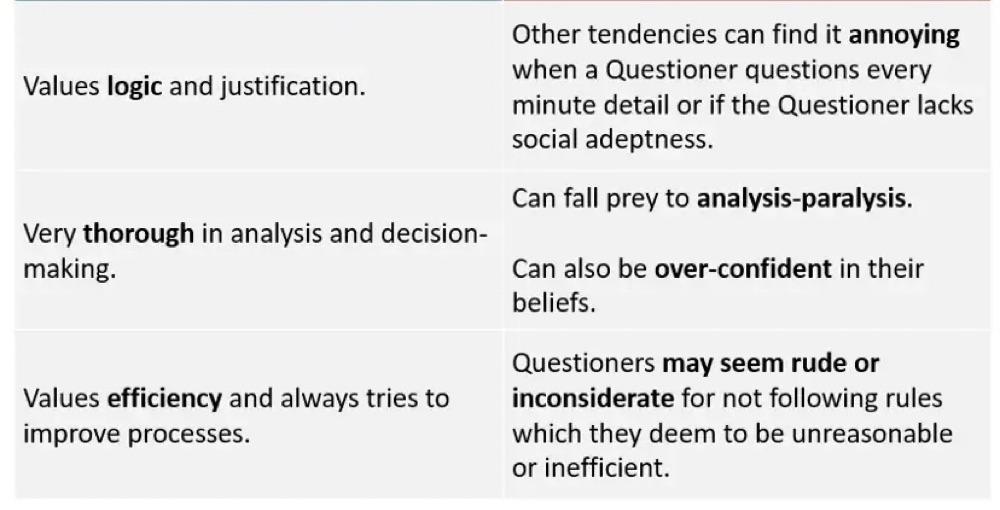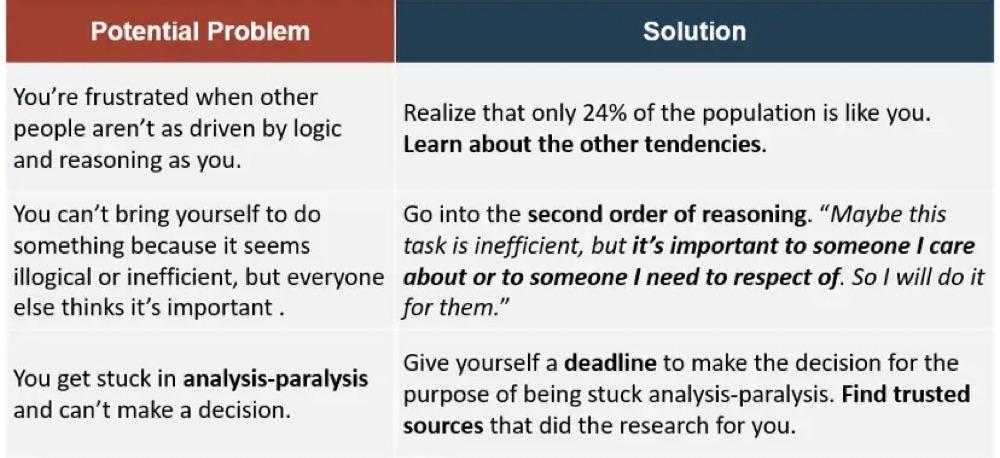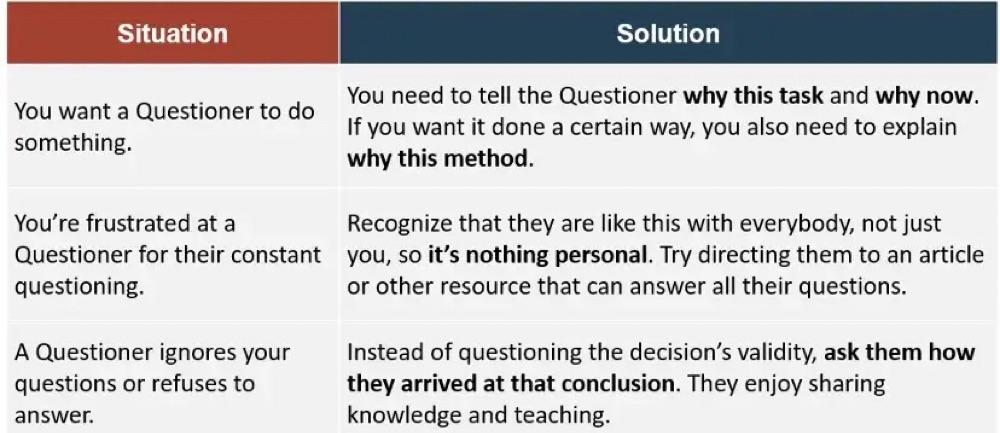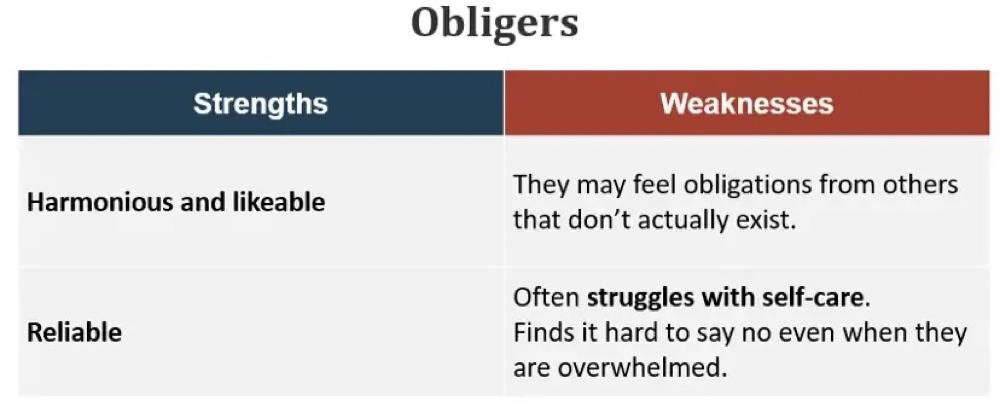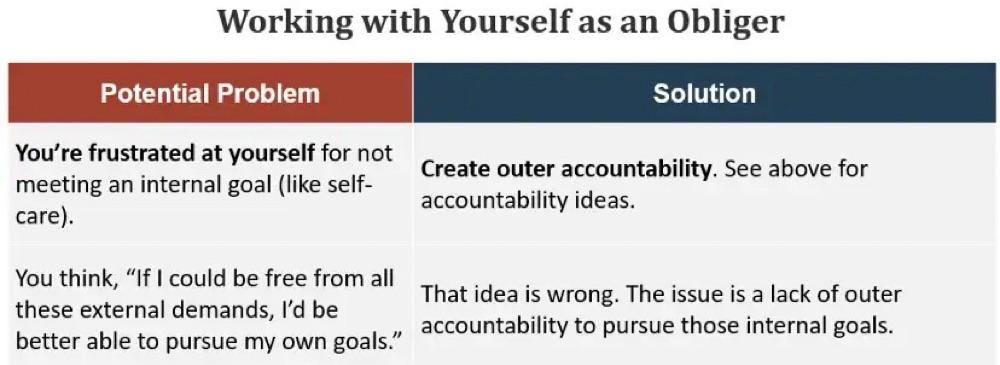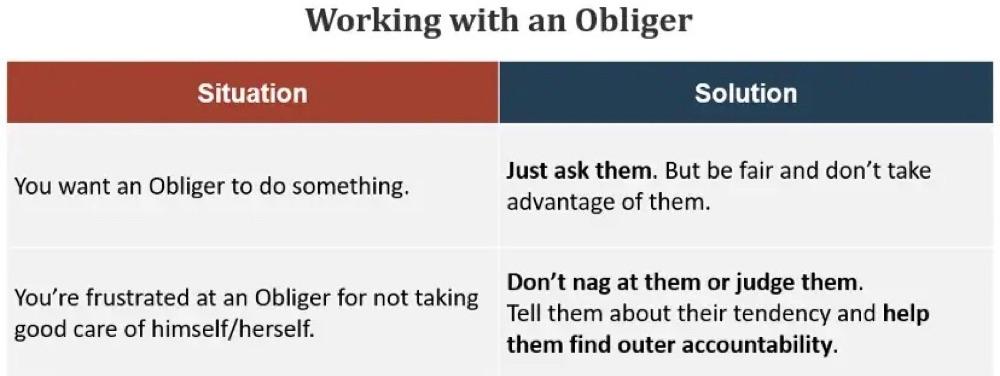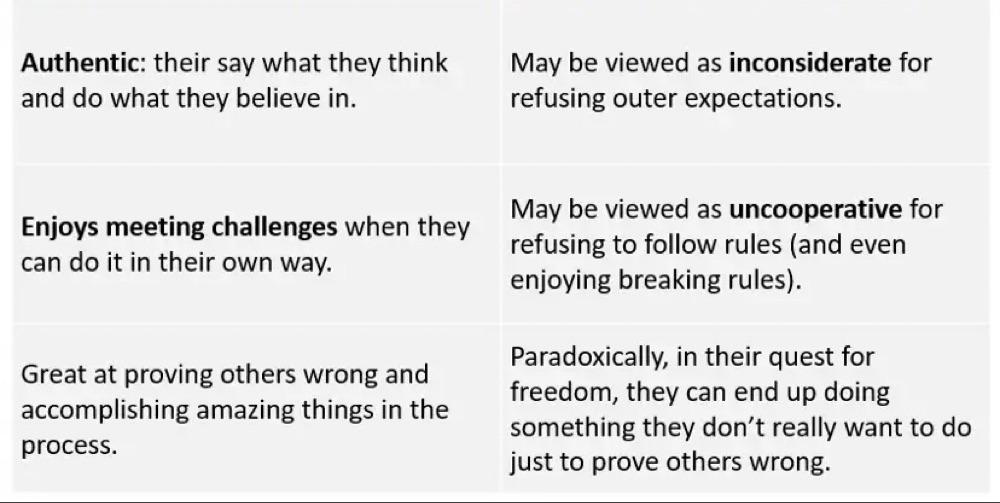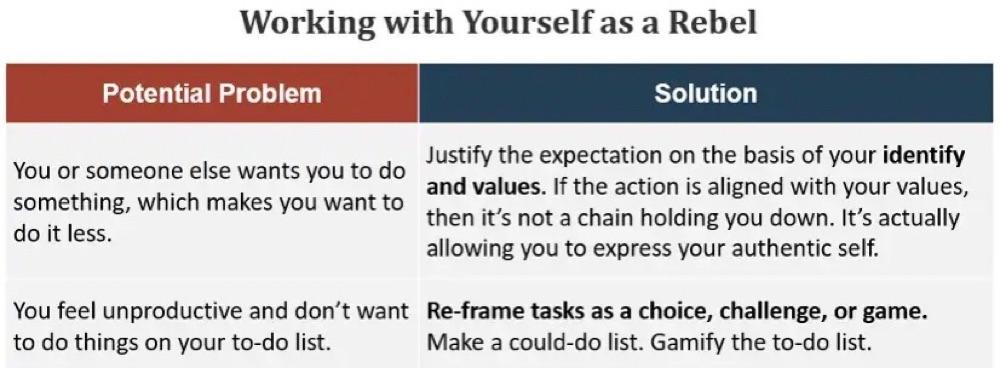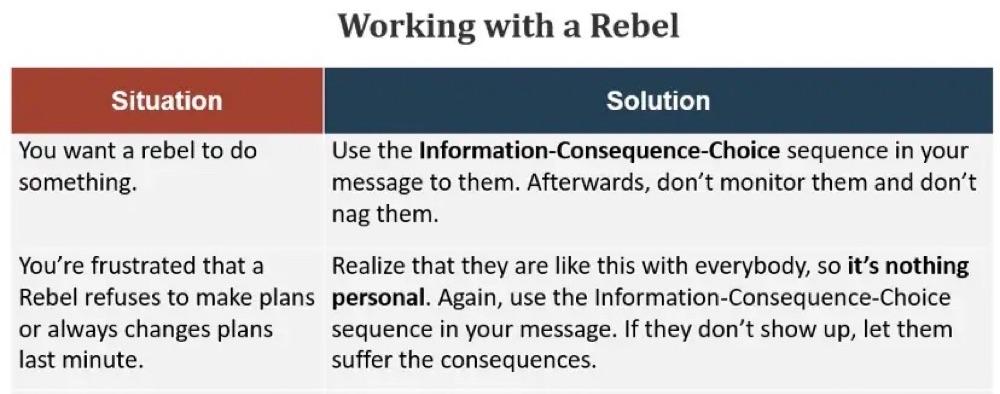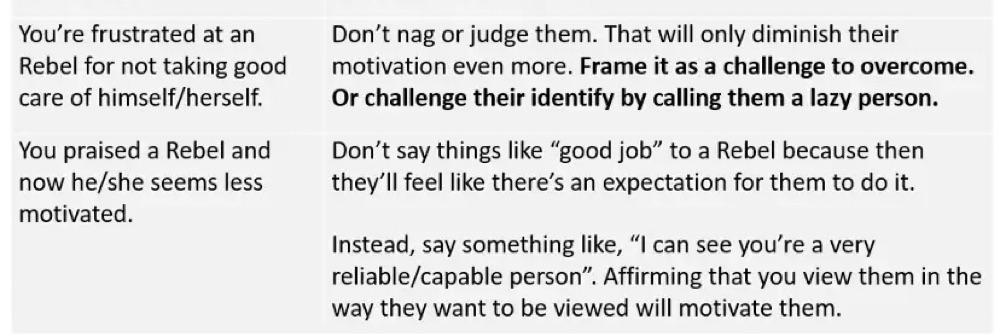The 4 Tendencies (Or Another Way To See Expectations, Responsiveness, Resistance, And Happiness)
Curated from: psychologytoday.com
Ideas, facts & insights covering these topics:
28 ideas
·16.9K reads
53
3
Explore the World's Best Ideas
Join today and uncover 100+ curated journeys from 50+ topics. Unlock access to our mobile app with extensive features.
The Happiness Project
Gretchen Rubin, author of The Happiness Project, spent years pondering which personality differences underly differences in how people achieve happiness. Her studies led her to the conclusion that successes and failures in achieving happiness are best explained by the importance people place on fulfilling inner expectations and outer expectations. Inner expectations are our own personal standards and values; outer expectations are what other people expect of us.
132
1.63K reads
The 4 Tendencies
Some people have strong, clear inner expectations that they strive to live up to while some people lack a clear-cut inner compass. Some people are vigilant about what others expect from them and they try to conform to those expectations, while some people are either oblivious to or unconcerned about outer expectations. Because responsiveness to inner and outer expectations are two independent dimensions of personality, it is possible to classify people into four personality types that Rubin labels The Four Tendencies.
126
1.41K reads
Why Do The Tendencies Matter Anyway?
Understanding the four tendencies has three primary benefits:
- Self-mastery in getting yourself to do things
- Influencing others to do things
- Understanding why others do or don’t do things, which reduces frustration and increases harmony.
124
1.25K reads
The Upholder, The Questioner, The Obliger, The Rebel
Rubin has written a book called The Four Tendencies and has provided an online quiz that we can take to determine which of the Four Tendencies best describes us:
- Upholder (responsive to both inner and outer expectations)
- Questioner (responsive only to inner expectations)
- Obliger (responsive only to outer expectations) or
- Rebel (resistant to both inner and outer expectations).
According to a representative sample, the distribution of the tendencies is 41% Obligers, 24% Questioners, 19% Upholders, and 17% Rebels.
133
1.01K reads
The Upholder
Upholders readily meet inner and outer expectations. They are highly disciplined and love schedules and routines.
Strengths and Weaknesses of Upholders:
An Upholder’s main strength is discipline, and their main weakness is that other tendencies may view them as rigid and cold. Although one might expect Upholders to be drained from constantly meeting so many expectations, they are actually energized by it, and they are great at scheduling self-care.
126
963 reads
Working With Yourself As An Upholder
Upholders are usually pretty happy with themselves, but they can get judgmental or frustrated at other tendencies.
122
953 reads
Working With An Upholder When You’re Not One
Many people value Upholders in a relationship and team for the energy and discipline they bring.
123
827 reads
The Questioner
Questioners turn all outer expectations into inner expectations if they believe its reasonable and efficient. Thus, Questioners only meet inner expectations.
Some random characteristics of Questioners: They hate waiting in line, they love spreadsheets, and they love sharing articles.
Strengths and Weaknesses of Questioners:
Questioners excel at being logical and efficient in everything they do. But they can also be viewed as annoying for their constant questioning unless they are very socially adept when asking those questions.
125
661 reads
Questioners have the self-direction of Upholders, the reliability of Obligers, and the authenticity of Rebels.
GRETCHEN RUBIN
123
697 reads
Working With Yourself As A Questioner
Questioners are generally pretty happy with themselves, but they can get frustrated at others for doing things that seem illogical or inefficient.
123
661 reads
Working with a Questioner When You’re Not One
Questioners can add value to relationships and organizations by ensuring people don’t unthinkingly accept expectations that aren’t justified or efficient.
They key with Questioners is justification. Once they accept an expectation, you can count on them to deliver (and maybe even improve upon a process for you.)
120
540 reads
Working with a Questioner When You’re Not One
Ironically, many Questioners resist being questioned because they think, “If I made this decision, I obviously researched it thoroughly. It’s not my fault if you didn’t do your research on the topic.” Questioners also hate questions that are a waste of time. Their first thought is always, “Why should I bother answering this question?” If, upon reflection, you realize your question doesn’t really need to be answered, then let it go. If the question is important, then ask the Questioner to share their thought process and logic. They enjoy that.
120
445 reads
The Obliger
Obligers need outer accountability to meet any inner expectation. For this reason, they gain the most from learning about their tendency.
Strengths and Weaknesses of Obligers:
Obligers are the easiest tendency to get along with. But they often get frustrated at themselves for being unable to meet internal goals.
120
516 reads
When what others expect from Obligers is what they expect from themselves, they have the life they want.
GRETCHEN RUBIN
120
496 reads
Working With Yourself As An Obliger
It’s worth mentioning again that Obligers need outer accountability to meet an inner goal. It’s not a sign of weakness; it’s just different wiring. Fortunately, there’s always ways to create accountability.
Obligers also vary dramatically in what makes them feel accountable. For some Obligers, a simple cellphone reminder may be enough. For others, they may need supervision or monitoring from others.
118
454 reads
Working With Yourself As An Obliger
Unfortunately, Obligers are often taken advantage of, which leads to resentment. If an Obliger is faced with prolonged expectations that are unfair, unrealistic, or make them feel taken for granted, an Obliger can fall into Obliger-Rebellion. When this happens, they will stop meeting all expectations and often do sudden and dramatic things like ending a marriage with an ungrateful spouse or quitting a job due to unfair treatment. After a period of time, even if nothing changes, the Rebellion will end and the Obliger will go back to normal, but those burnt bridges will be forever burnt.
120
400 reads
Working With Yourself As An Obliger
To prevent Obliger-Rebellion, Obligers must stand up for themselves. This can be very hard as its against their nature. Unfortunately, Obligers can’t count on other tendencies to stand up for them because other tendencies are all used to standing up for themselves (so they expect you to do the same). If you want to be free of these unfair expectations, the simple act of bringing it up in a conversation can often be enough.
119
358 reads
Working With An Obliger When You’re Not One
Obligers are like the adhesive in a relationship or a team. They bring people together and maintain harmonious relationships. They are also very reliable.
As mentioned earlier, Obligers are often taken advantage of, so we need to do our part in making sure they are treated fairly. If you’re not sure whether you are taking advantage of someone, simply ask yourself, “If I was in their shoes, would I feel like I’m being treated unfairly or taken advantage of?” If the answer is yes, the Obliger probably feels that way too but just isn’t speaking up.
121
340 reads
Working With An Obliger When You’re Not One
Interestingly, some Obligers start to ignore expectations from their spouse. Ironically, it’s not because the Obliger doesn’t care, but rather the Obliger feels so close to their spouse that the spouse’s expectations become like inner expectations. So they ignore what their spouse wants just as they ignore what they themselves want! In such a situation, pointing it out might fix the issue. If not, then try to find other accountability.
120
332 reads
The Rebel
Rebels want to do what they want to do, in their own way, and on their own time. If someone else tells them to do the exact same thing, they will resist. They don’t even want to tell themselves to do something. They prefer to act from freedom, choice, and self-expression.
Strengths and Weaknesses of Rebels:
Rebels might struggle with themselves because conventional advice doesn’t work for them. They are told to set goals and to get outer accountability by all the other tendencies, but those things actually make it harder for Rebels to do things because they feel a lack of freedom.
120
367 reads
Working With Yourself As A Rebel
Rebels can do anything they want to do, so self-understanding is key for Rebels. They should get clarity on their values and use their values as decision criteria for whether or not to do things. For example, “I am a good partner, so I will take responsibility for my fair share of chores regardless of what my partner wants me to do.”
122
327 reads
Working With Yourself As A Rebel
A Rebel can sometimes feel unproductive because the thought of having to do things makes them not want to do it anymore. The solution is to re-frame the tasks as a choice, challenge, or game. For example, instead of making a to-do list, a Rebel can make a could-do list and just do the things they feel like doing at that time. Another idea is to put a bunch of tasks on small folded-pieces of paper in a bowl. Then draw randomly from the bowl and do that item. This makes it a game of chance, but you can still be very productive this way.
122
296 reads
Working With Yourself As A Rebel
When others ask Rebels to do something, they can feel less motivated to do it even if they originally wanted to do it. In these situations, a Rebel can remember, “I’m free to do something even if someone else wants me to do it.” After all, not doing something because someone else asked is just as un-free as doing it because someone asked.
120
295 reads
Working with a Rebel When You’re Not One
The other tendencies tend to lack understanding for Rebels, making everyone’s lives harder in the relationship. When communicating with rebels, we should use this sequence: Information-Consequence-Choice. (By the way, the Information-Consequence-Choice sequence works with all tendencies. It’s just particularly important for Rebels).
If a Rebel refuses to do something, don’t save them from the consequences. They need to experience the painful consequences for themselves to learn the importance of something.
121
302 reads
Working with a Rebel When You’re Not One
Another way to motivate a Rebel is to challenge their identity. For example, instead of asking them to stop being late, say “Why do you keep being late? That’s just so inconsiderate!” If the Rebel doesn’t want to be seen as inconsiderate by you, they will likely be on time in the future.
A third way to motivate a Rebel is to challenge their ability. For example, you can say, “Well, it’s hard for many people to stay fit these days, so I’m not surprised you’re struggling too.” A statement like that may light a fire within a Rebel to prove themselves capable of overcoming that challenge.
120
277 reads
When I describe the Four Tendencies, I sometimes get the impression that people try to figure out the “best” Tendency and shoehorn themselves into it. But there’s no best or worst Tendency. The happiest, healthiest, most productive people aren’t those from a particular Tendency, but rather they’re the people who have figured out how to harness the strengths of their Tendency, counteract the weaknesses, and build the lives that work for them.
GRETCHEN RUBIN
120
336 reads
120
433 reads
IDEAS CURATED BY
CURATOR'S NOTE
They say there are two types of people in the world: those who divide people into two types, and those who don’t.
“
Xarikleia 's ideas are part of this journey:
Learn more about motivationandinspiration with this collection
Navigating and enjoying the thrill of horror and scare experiences
Historical knowledge of Halloween and its origins
Understanding and appreciating Halloween traditions worldwide
Related collections
Similar ideas
6 ideas
7 ideas
Are You Yoda or Darth Vader?
nautil.us
5 ideas
The Light Triad vs. Dark Triad of Personality
blogs.scientificamerican.com
Read & Learn
20x Faster
without
deepstash
with
deepstash
with
deepstash
Personalized microlearning
—
100+ Learning Journeys
—
Access to 200,000+ ideas
—
Access to the mobile app
—
Unlimited idea saving
—
—
Unlimited history
—
—
Unlimited listening to ideas
—
—
Downloading & offline access
—
—
Supercharge your mind with one idea per day
Enter your email and spend 1 minute every day to learn something new.
I agree to receive email updates
